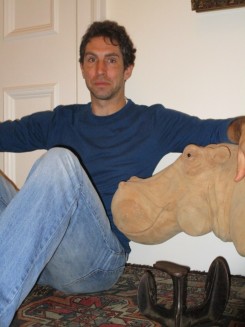The Go-Betweens : How Mosquitoes and their kin shaped the Modern World
Andy Dobson

What is a mosquito – or a louse, a fly, a flea – if not an irritation?
Perhaps something worse; a bringer of disease, an agent of illness and despair.
It is all these things, but it is also a builder of worlds. Indeed, no animals have changed the course of human affairs so dramatically and so pervasively as the insects and their kin that carry our infections. Just as mighty oaks from little acorns grow, so empires rise – and fall – from tiny bites. Without mosquitoes, the United States of America would stretch no further west than the Missouri; without lice, Bonaparte’s France would have kept hold of Europe. The economic structures of Africa were shaped as much by a fly as by colonial desire; medieval feudalism was broken by fleas.
Insects, infections, and humans form a trinity that has been every bit as pervasive and influential in shaping history as its more familiar Christian counterpart. Through the habits of their reluctant go-betweens, insect-borne diseases have drawn lines on maps, raised and ruined empires, wreaked social revolutions, and decided the fortunes of princes and paupers.
This book is about these stories and more, describing the ways that tiny carriers of disease have moulded, disrupted, and catalysed human affairs. Blending historical narrative with popular science, The Go-Betweens takes a biologist’s-eye view of history, explaining how and why these so-called ‘disease vectors’ have insinuated themselves into the past and present of human societies.
Along the way the reader will learn:
- How insects took two Empires from the French
- How a fly dictates the economy of sub-Saharan Africa
- How Christianity promoted the spread of typhus
- How yellow fever and malaria created modern America
- How plague changed medieval society – and why our common understanding of its spread is wrong
In brief:
- A colourful, eclectic, narrative-driven account of some of the most important phenomena in biology and human history
- Filled with clearly described scientific insights, historical curiosities, and engaging anecdotes
- Written by an academic specialist on the topic, in an entertaining, readable style
Book Details:
- Author: Andy Dobson
- On Submission
- All rights are available

Andy Dobson
Dr Andy Dobson is a research biologist whose papers have been cited well over 1000 times in the academic literature. After a first-class degree in Ecology from Durham, Andy completed a PhD on the ecology of hen harriers at Nottingham University, before joining the University of Oxford’s Zoology Department. At Oxford he developed an interest in epidemiology, and used mathematical modelling to predict changes in the risk of Lyme disease and other tick-borne infections. During a later fellowship at Stirling University, Andy turned his attention to host-parasite interactions, and used sim...
More about Andy Dobson